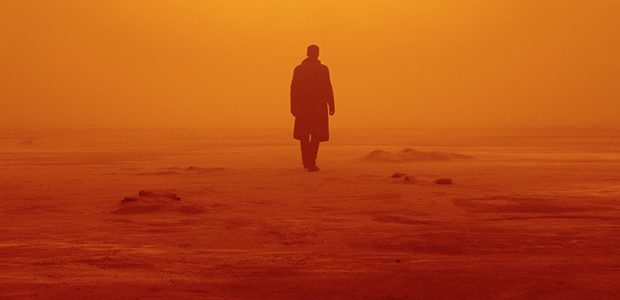
Sly, somber and serious, Blade Runner 2049 is an apt continuation and expansion of the universe created by the original Blade Runner, a cult classic sci-fi film that came out 35 years ago and has had fans, detractors and those in the middle debating about whether its protagonist Deckard (Harrison Ford) was a Replicant or not ever since. Don’t worry; the sequel understands the appeal of leaving this an unresolved enigma, as it does, while creating more intrigue from the new setup.
This film is based 30 years after the events of the first, where a new Blade Runner, Officer K (Ryan Gosling) discovers, while on a routine mission hunting rogue Replicants, something that has the potential to alter the very fabric of the delicate society where Replicants and humans co-exist but also raise questions about what he knows about himself and his own existence. Saying anything more is not allowed. Not only because the media screening I attended had stern instructions from distributors not to, but also because part of the films huge joy is discovering its secrets, which start from about the five minute mark and continue all the way up to the end, nearly 2 and a half hours later. Fear not, the running time doesn’t feel exhaustive in anyway, in fact its epic, full of beautiful, flavoursome visuals – from the neon lit, cyberpunk LA that’s strewn with piles of garbage, like the Earth from Wall-E, to the rusty orange of an irradiated Las Vegas. Thank DP Roger Deakins for this, who does some of his finest work by immersing us into this eye-popping dystopia.
K’s discovery (which shall remain unnamed), leads to him remaining in a bewildered state of confusion and self-doubt for a large duration of the film, similar to how Deckard felt when he found himself pondering about who he was. His questions about what he knows (or doesn’t) anticipate those of the audiences. The film makes you think you know where it’s headed and then toys with this expectation to very surprising, at times poignant, effect. The lack of a real antagonist (Jared Leto’s blind industrialist Niander Wallace comes close) prevents the film from matching the presence of Rutger Hauer’s seminal Roy Batty but Denis Villeneuve’s spectacularly vivid direction (following his best work in the sci-fi classic Arrival) make up for this minor flaw. The script, attributed to Hampton Fincher, who also wrote the original, and Michael Green, coming off his recent acclaim as the writer of the iconic Logan, is simple yet outrageously inventive about ideas related to machines and their potential.
Respectful of the source material, it majestically both builds and deconstructs it in simple yet audacious ways. Questions about the reality of our memories replace those of dreams while the concerns of holographic companions replace the concerns of Replicants. It is so ingeniously plotted that even the late involvement of Deckard into the plot never gives away the films position of who he really might be. Blade Runner 2049 may not provide the ultimate answer to the question of whether Deckard dreams of electronic sheep, but by the time the credits roll, you realize it doesn’t need to.
Rating: 



